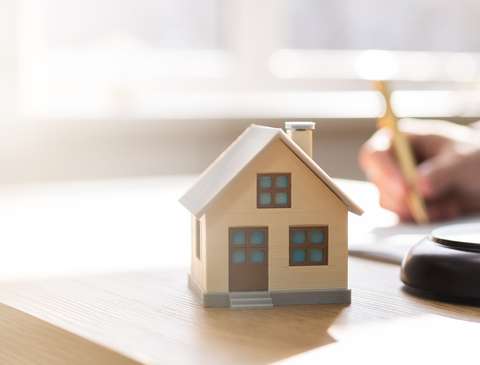Selling a property at auction
Everything you need to know about selling at auction

Anybody selling a house knows that it can be a difficult process. Although there may be hurdles faced, the end goal is to find a willing buyer which proceeds with the purchase in as little time and fuss as possible.
If you are seeking out a faster way to sell your property, or are even currently struggling to get it sold, heading off to the auction house might just be the best option for you!
Before you do choose to go down this route, here is everything you need to know on how to sell a property at auction…
What auction methods are available?
At a property auction, there are two ways in which to exchange and complete a transaction- the ‘traditional’ method or the ‘modern’ method.
The traditional method: When a buyer successfully bids on your property at an auction that used the traditional method, contracts will be exchanged, and the buyer will pay a 10% deposit directly after the auction. After this, they will have 28 days to complete the sale.
The modern method: In an auction that uses the modern method, instead of exchanging contracts right away, the buyer can pay a fee to reserve the property. The buyer will then have 56 days in which to exchange contracts as well as complete the purchase, their deposit is also non-refundable in this method.
The auction process
- The auction house- First things first, it is important to do your research to find the best possible auction house which you can sell your property with. If you decide to go for a well-established company, it may cost you more, however, the team are more likely to know how to market your property and reach the maximum of potential buyers.
2. Understanding the fees- On top of your general moving costs, the auction house will usually request a fee to be paid upon entry. This will cover the listing in the catalogue as well as advertising costs and can range anywhere from a few hundred to a few thousand pounds. You will also need to pay commission if/when your property gets sold.
3. Registering your property- You will need to register your property at least 6 weeks before the auction to be sure that it will be marketed properly by the auctioneer. Check over the listing to make sure it is all correct before print and speak to the auctioneer about final details, such as, the guide price and the lowest price that you would be happy to accept.
4. Viewings- Prepare for viewings by making sure that the property is looking its best, this is essentially what is going to sell it to the buyers as they will get to see future potential and possibilities.
5. Auction day- If you are not in attendance, the auction house will ring you to inform you of the outcome of your property. You will receive your funds within a few days after the sale is complete, minus any agreed fees.
No sale on the day?
Most auction properties will sell, but in the off chance that yours does not reach the number of bids necessary to complete the sale, the auctioneer will mark it as ‘unsold’ and continue to market the property for a set period.
The main thing to remember is that preparation is key for this process, as with most selling practises.
We wish you the best of luck on your house selling journey!









